D-Coded Dictionary
Your essential glossary for diabetes, translating medical terms into everyday language.
ADA-recommended Goal
Fasting blood glucose: 80-130 mg/dL and postprandial (1-2 hours after meals) blood glucose: less than 180 mg/dL
Angiotensin Converting Enzyme 2 (ACE2)
is a type of enzyme found in various tissues throughout the human body. Plays a role in the regulation of the blood pressure, fluid balance, and electrolyte homeostasis.
Artificial pancreas
An artificial pancreas, also known as a closed-loop system, is an advanced diabetes management technology designed to automate and optimize insulin delivery for people with diabetes. It integrates a continuous glucose monitoring (CGM) device, which measures blood sugar levels, with an insulin pump that delivers insulin into the body.
The artificial pancreas uses algorithms and sophisticated software to analyse the real-time glucose data from the CGM and adjust the insulin delivery accordingly. This automation aims to keep blood sugar levels within a target range, reducing the need for manual insulin adjustments by the individual.
By simulating the function of a healthy pancreas, the artificial pancreas can help people with diabetes achieve better blood sugar control, minimize the risk of hypoglycaemia (low blood sugar), and improve overall diabetes management. This technology represents a significant advancement in diabetes care, enhancing the quality of life and reducing the burden of constant diabetes monitoring and insulin administration.

An artificial pancreas is a device which keeps blood sugar levels within a target range, reducing the need for manual insulin adjustments by the individual.
Autoantibodies
Antibodies are immune system soldiers that lock onto and tag harmful invaders like germs so that other immune cells can destroy them.
Auto Immune System
In autoimmunity, the immune system gets confused and mistakenly attacks the body’s own cells, leading to various diseases and health problems
Carbohydrates
One of the three main macronutrients found in food, alongside proteins and fats. Carbohydrates are an essential source of energy for the body, providing fuel for various bodily functions and activities.

Cardiovascular Disease (CVD)
Clinical Trial
A clinical trial is a carefully planned medical study in which people participate to test new treatments or interventions, helping doctors and researchers determine their safety and effectiveness for specific conditions or diseases.
Confidence Interval (CI)
Confidence Interval is a statistical concept used in inferential statistics to estimate a range of values within which a population.
Congenital Anomaly
Structural or functional abnormalities that occur during intrauterine life.
Continuous Glucose Monitoring (CGM)
A system that measures glucose levels continuously throughout the day and night, providing real-time data to help people with diabetes manage their condition.
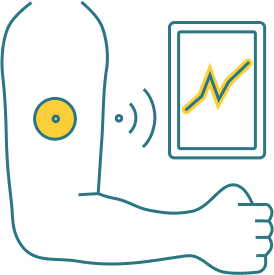
COVID 19
Coronavirus disease 2019 is a highly contagious, respiratory illness caused by the novel coronavirus SARS-CoV-2.
Diabetes
Diabetes, often referred to as diabetes mellitus, is a chronic (long-lasting) medical condition characterized by high levels of glucose (sugar) in the blood. This occurs either because the pancreas does not produce enough insulin (a hormone that regulates blood sugar) or because the body’s cells do not respond properly to insulin.

occurred by less production of insulin or body’s improper response to insulin.
Differentiated Islet Cell Therapy
The transplantation stem cells that are induced to differentiate into insulin-producing cells. These are transplanted into individuals with diabetes.
D.K.A.
Diabetic ketoacidosis (DKA) is a serious and potentially life-threatening complication of diabetes, primarily affecting those with type 1 diabetes. It occurs when the body lacks insulin, leading to high blood sugar levels and the production of ketones, which can make the blood acidic.
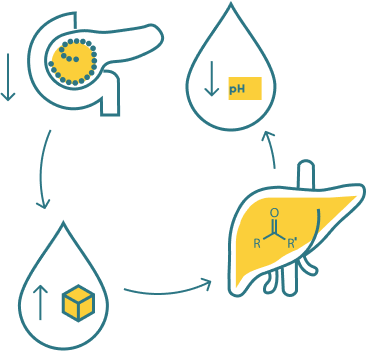
primarily affects those with type 1 diabetes.
Efficacy
Endogenous
Something that originates or arises from within a particular organism such as insulin.
Exogenous
Fat
Fat, also known as dietary fat or lipids, is one of the three main macronutrients found in food, alongside carbohydrates and proteins. It is a concentrated source of energy, providing more than twice the calories per gram compared to carbohydrates and proteins.

concentrated source of energy
HbA1c (Glycated Hemoglobin)
A blood test that measures the average blood sugar levels over the past two to three months. It is used to monitor long-term diabetes control.
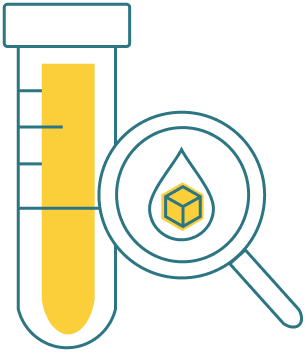
Hyperglycaemia
It is a condition where the blood glucose level goes high, more then 126 in case of fasting blood glucose and more than 200 normally. And during that situation the person need to take their medication to reduce the blood glucose to normal level.
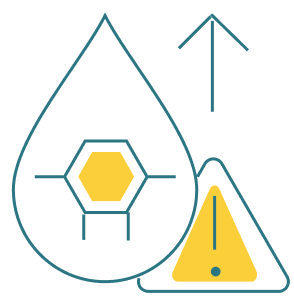
Hypoglycaemia
It is a condition where the blood glucose level goes low, less than in 80 mg/dll . During that situation the person need to take Glucose or Hypo treats to increase the blood glucose to normal level.
Gestational Diabetes
A form of diabetes that occurs during pregnancy in some women. It usually resolves after childbirth, but women who have had gestational diabetes are at higher risk of developing Type 2 diabetes later in life.

high risk of developing type 2 diabetes later in life.
Glucagon
It is a hormone which has a opposite function to the insulin, which increase the blood glucose level.

Glucometer
It is a gadget used to measure the blood glucose with just one drop of blood.

Glucose
A simple sugar and the body’s primary source of energy. It comes from the foods we eat and is carried by the bloodstream to cells for energy production.

Glucose Tolerance Test
Is used to evaluate how effectively your body metabolizes sugar.
Placebo: is a substance or treatment that has no therapeutic effect on its own.
Glycemic Control
The way of managing the blood glucose level of diabetic patients at optimum level.
Hepatic Portal Vein
A major blood vessel in the circulatory system that carries blood from abdominal organs to the liver.
Insulin
A hormone produced by the pancreas that helps regulate blood sugar levels by allowing glucose to enter cells for energy.
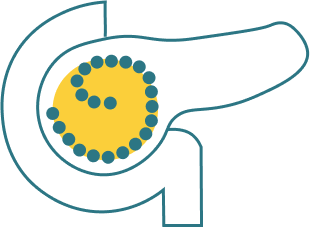
Intensive Insulin Therapy
Insulin delivered via multiple daily injections or pump therapy.
Islet Cells:
Also known as islets of Langerhans, are clusters of cells found in the pancreas, play a crucial role in regulating blood glucose levels by producing hormones such as insulin and glucagon.

Immunosuppressive Therapy
Refers to the medical treatment or use of drugs that suppress the activity of the immune system.
Ketones
ketones are chemicals produced by the body when it breaks down fat for energy in the absence of sufficient insulin.

Ketone Strips
Ketone strips are small, disposable test strips used to detect the presence of ketones in a person’s urine.
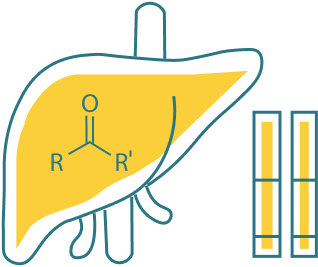
L.A.D.A
Latent autoimmune diabetes in adults (LADA) is a type of diabetes that starts in adulthood and slowly gets worse over time. Like type 1 diabetes, LADA happens when the pancreas stops making insulin. That’s usually because an autoimmune process is damaging cells in the pancreas. But unlike type 1 diabetes, in LADA, the process happens slowly.

high risk of developing type 1 diabetes later in life.
Myocardial Infarction
Pancreas
An organ located near the stomach that produces insulin and other digestive enzymes to help with food digestion and blood sugar regulation.

Placebo
A placebo is a harmless substance or treatment that has no therapeutic effect but is sometimes given to participants in a clinical trial to serve as a control, helping researchers assess the true effects of the experimental treatment.
Prediabetes
A condition where blood sugar levels are higher than normal but not high enough to be diagnosed as Type 2 diabetes. It is a warning sign that indicates increased risk for developing diabetes if preventive measures are not taken.
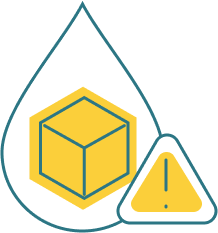
Pre-eclampsia
A condition in pregnancy characterized by high blood pressure, sometimes with fluid retention and proteinuria.
P.R.I.S.M.A
Preferred Reporting Items for Systematic Review and Meta-Analyses (PRISMA) is a widely recognized and used set of guidelines for reporting systematic reviews and meta-analyses. It aims to improve the transparency, and clarity of reporting.
Protein
Proteins are essential macronutrients found in food, composed of amino acids. They play crucial roles in the body, including building and repairing tissues, supporting immune function and many more functions .

Retinopathy
Retinopathy is a medical condition that affects the eyes, specifically the retina. It is characterized by damage to the tiny blood vessels present in the retina that can eventually cause vision impairment.
SHEs
Severe hypoglycemic events associated with type 1 diabetes (T1D).
SARS-CoV-2
Severe Acute Respiratory syndrome Coronavirus 2 is a member of the coronavirus family and shares genetic similarities with other coronaviruses. It can cause respiratory illness that can range from mild, asymptomatic to severe cases requiring hospitalization.
Trial Net
Is a network of clinical trials focused on identifying and monitoring individuals at risk of developing type 1 diabetes through screening for diabetes-related autoantibodies.
Type 1 Diabetes
Type 1 diabetes is a chronic autoimmune disorder in which the body’s immune system mistakenly attacks and destroys the insulin-producing cells in the pancreas. As a result, the pancreas produces little to no insulin, leading to high levels of glucose (sugar) in the blood. People with type 1 diabetes require lifelong insulin therapy to regulate their blood sugar levels and manage the condition.
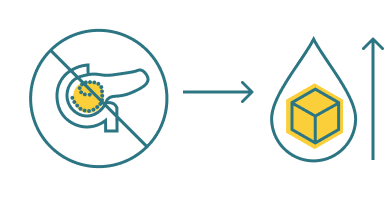
a chronic auto immune disorder that occurs when pancreas produces little to no insulin, leading to high levels of glucose (sugar) in the blood.
Type 2 Diabetes
A metabolic disorder characterized by insulin resistance, where the body’s cells do not respond effectively to insulin. This results in high blood sugar levels. Type 2 diabetes can often be managed through lifestyle changes, oral medications, and sometimes insulin therapy.

a metabolic disorder that occurs when insulin is resisted by body leading to high levels of glucose (sugar) in the blood.
Vertex
Is a biopharmaceutical company that focuses on the discovery, development, and commercialization of innovative medicines for serious diseases.
